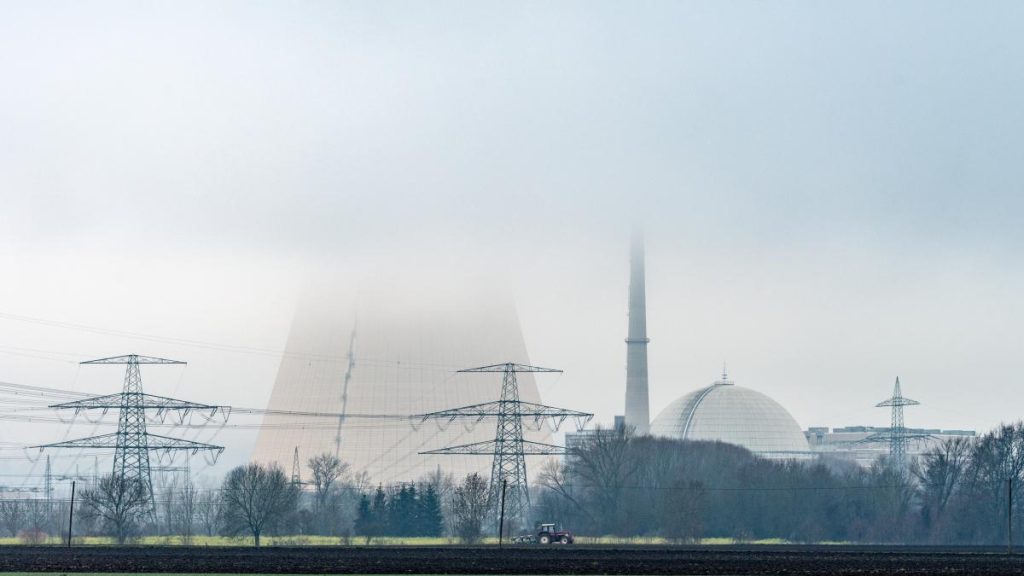The search for a permanent repository for highly radioactive waste is being delayed, leaving these materials stored above ground in 16 interim storage facilities nationwide. Communities affected by this, such as Niederaichbach in Bavaria, are now pushing back. The closure of the Isar 2 nuclear power plant in Bavaria, which happened a year ago, has left the town grappling with the legacy of the nuclear age. The plant’s shutdown has brought an end to more than three decades of nuclear energy production in the area, with the news of the closure being a surreal moment for residents. While the town is now glad to be rid of nuclear power, they are left with the challenge of storing tons of radioactive waste near the decommissioned plant for potentially several generations.
The local interim storage facility, named “Bella,” was built in 2007 next to the Isar 2 plant and currently holds around 90 containers of high-level radioactive waste, with capacity for more. However, the facility is authorized to operate until 2047, raising concerns about the lack of a permanent nuclear waste site in Germany by that time. With the search for an underground repository delayed until at least 2046, communities like Niederaichbach are faced with the risks of continuing to store radioactive waste above ground. There are a total of 16 interim storage facilities for high-level radioactive waste across Germany, with plans for a central repository still unresolved.
Bürgermeister Josef Klaus, representing communities hosting nuclear facilities, is demanding compensation for the burden of storing radioactive waste. He argues that these contaminated areas cannot be utilized for other purposes and are causing costs for the communities. Klaus, as the head of the association of communities hosting nuclear facilities, plans to formally request the German government to provide compensation for these communities. He points out that other communities hosting interim storage facilities, such as Gorleben and Ahaus, have received compensation and questions why others have not. Klaus suggests an annual compensation of 800,000 to 1.3 million euros per community as a fair amount for the challenges they are facing.
The delayed search for a permanent nuclear waste repository in Germany is creating uncertainty for communities like Niederaichbach, where interim storage facilities are filled with high-level radioactive waste. While the closure of nuclear power plants has brought relief to some residents, the issue of long-term storage and disposal of nuclear waste remains a concern. With the prospect of continued above-ground storage for many more years, communities are seeking compensation for the financial and environmental impacts of hosting these facilities. The demand for fair compensation for these communities is gaining momentum, with calls for the German government to address the challenges faced by those hosting interim storage sites across the country.
As the search for a permanent repository for high-level radioactive waste in Germany continues to be delayed, communities hosting interim storage facilities are voicing their concerns about the long-term consequences of storing these materials above ground. With uncertainties surrounding the timeline for finding a suitable site for nuclear waste disposal, communities like Niederaichbach are seeking financial compensation for the burden of hosting these facilities. The demand for fair compensation for hosting interim storage sites is expected to increase as the challenges of managing radioactive waste persist. The German government is being urged to address the concerns of communities affected by the legacy of the nuclear age and provide support for the safe and secure disposal of high-level radioactive waste in the country.















